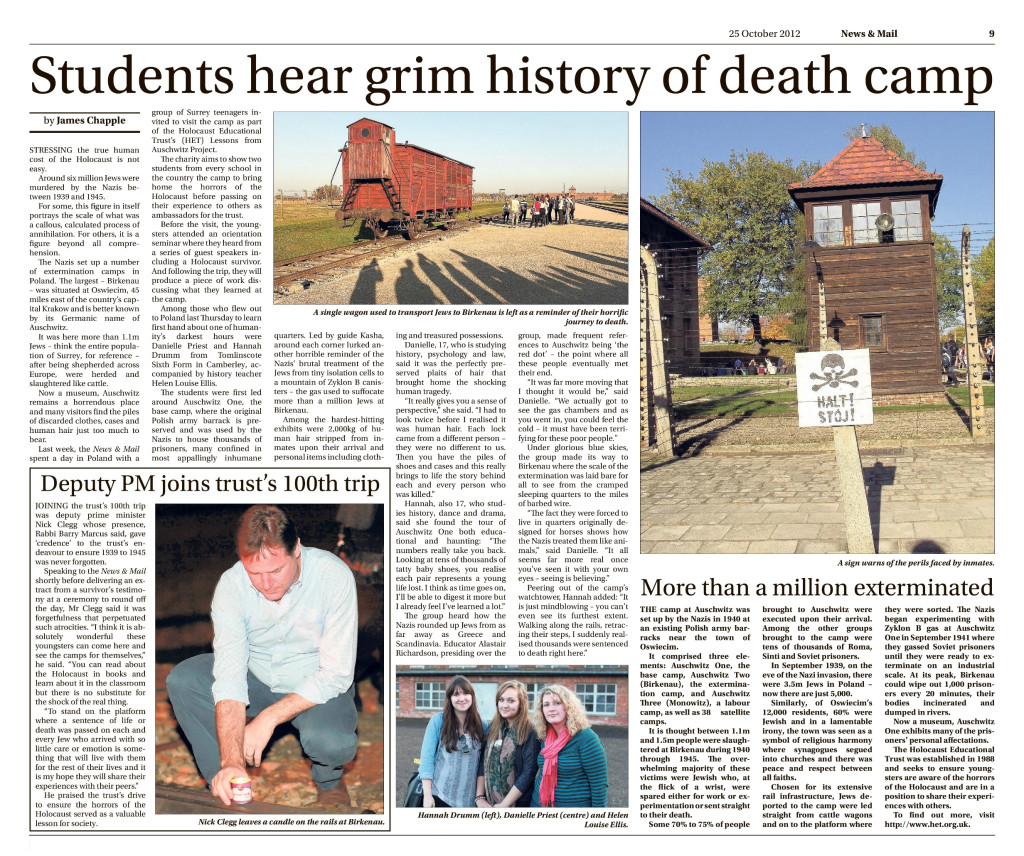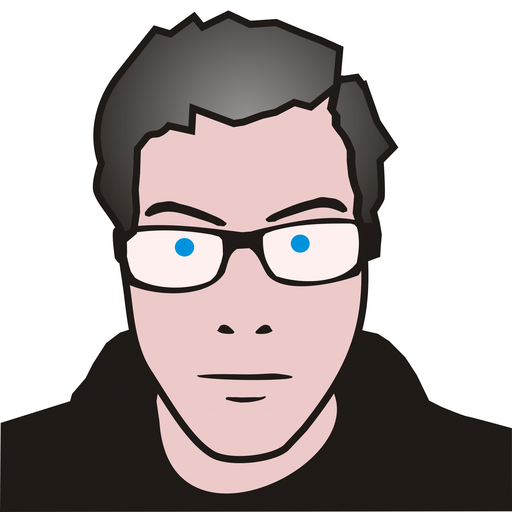Shortly after I started my job here in Guildford, I was offered the opportunity to accompany a couple of hundred teenagers from across Surrey on a trip to the infamous Auschwitz-Birkenau death camp in Poland with the Holocaust Educational Trust (HET).
Nick Clegg came along too. It was an extremely unusual and moving day, one that will stick with me for the rest of my life, as I’m sure the experience of visiting Auschwitz does for all who set foot there.
I was perhaps only three or four months into my job by the time the trip came around and I still look back at this piece with a degree of pride, if only for somehow managing to collect myself and my thoughts before regurgitating them in a vaguely coherent manner.
Disclaimer: Yes, I know Krakow isn’t the capital of Poland. Junior reporters make mistakes.

Before I wrote this post, I had perhaps cast an eye over this article once since it was published back in October 2012. It’s somewhat strange to read it more than two years later, and arguably, two years wiser.
Today (January 27) is Holocaust Memorial Day. It’s some 70 years since the liberation of the indescribably vast Auschwitz-Birkenau death camp in Poland, and 75 years since the town of Oswiecin – then, ironically, something of a beacon of inter-faith tolerance – was so cruelly cemented into the history books.
We’ve all seen pictures of the various Nazi death camps. They are, thankfully, a part of our common conscience in 2015. At best, they serve as a reminder of an atrocity the world simply cannot allow to be repeated. At worst, they hark back to an atrocity the horrors of which echo to this day, having since been repeated in Congo, Armenia, and at Srebrenica during the Bosnian War, among others.
But nothing, absolutely nothing I’ve ever seen, compares with gazing out of one of the central guard towers at Birkenau, the biggest of all the Nazi death camps. It is simply breathtaking. You can’t process it there and then. The fact I can recall it so vividly more than two years later is perhaps an indication of the time is has taken, and continues to take, me to rationalise it.
Fortunately, Times journo Hugo Rifkind has managed to do so in a far more succinct and eloquent manner so I heartily suggest reading his post for the HET, which was published on Sunday (January 25).
